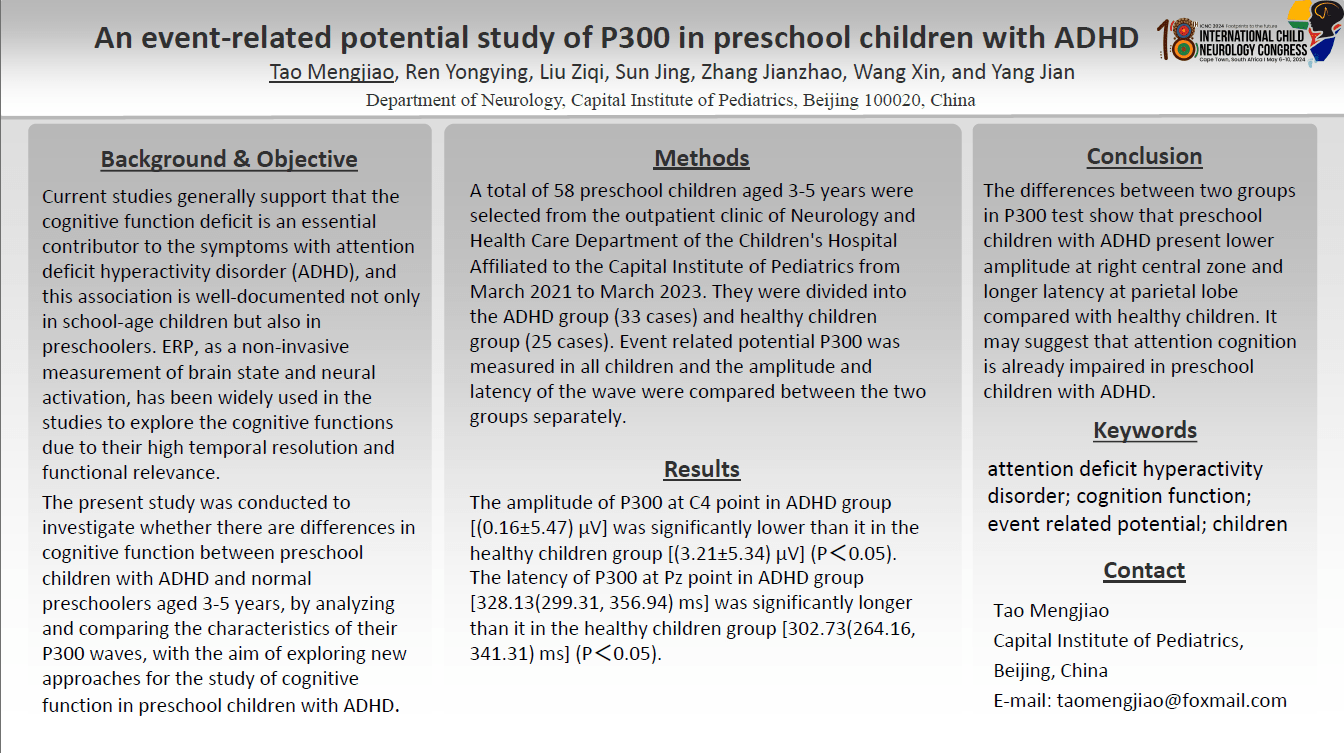An Event-related Potential Study Of P300 In Preschool Children With Attention Deficit Hyperactivity Disorder
Objective: To study the characteristics of event related potentials P300 in preschool children with attention deficit hyperactivity disorder (ADHD) aged 3-5 years, and to explore the differences in attention function compared with healthy children. To explore a new method for the study of cognitive function in preschool children with ADHD. Methods: A total of 58 preschool children aged 3-5 years were selected from the outpatient clinic of Neurology and Health Care Department of the Children's Hospital Affiliated to the Capital Institute of Pediatrics from March 2021 to March 2023. They were divided into the ADHD group (33 cases) and healthy children group (25 cases). Event related potential P300 was measured in all children and the amplitude and latency of the wave were compared between the two groups separately. Results: The amplitude of P300 at C4 point in ADHD group [(0.16±5.47) μV] was significantly lower than it in the healthy children group [(3.21±5.34) μV] (P<0.05). The latency of P300 at Pz point in ADHD group [328.13(299.31, 356.94) ms] was significantly longer than it in the healthy children group [302.73(264.16, 341.31) ms] (P<0.05). Conclusion: The differences between two groups in P300 test show that preschool children with ADHD present lower amplitude at right central zone and longer latency at parietal lobe compared with healthy children. It may suggest that attention cognition is already impaired in preschool children with ADHD.
Mengjiao Tao
Capital Institute of Pediatrics
China
Yongying ren
Capital Institute of Pediatrics
China
Ziqi Liu
Capital Institute of Pediatrics
China
Jing Sun
Capital Institute of Pediatrics
China
Jianzhao Zhang
Capital Institute of Pediatrics
China
Xin Wang
Capital Institute of Pediatrics
China
Jian Yang
Capital Institute of Pediatrics
China
